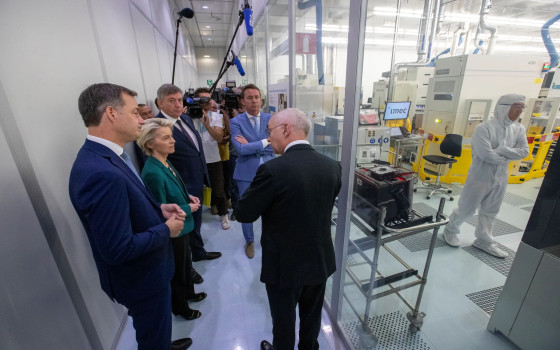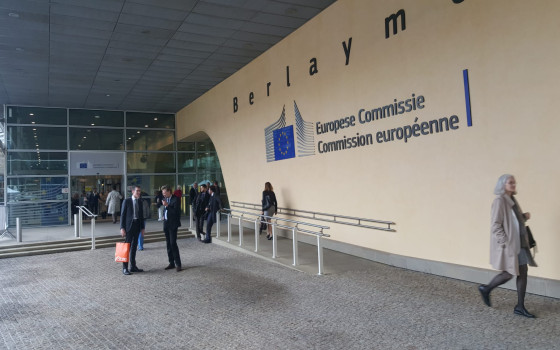
A UN report on the future of the Arab region in the age of artificial intelligence: A call to ensure it becomes a driver of sustainable development in the region

- Europe and Arabs
- Friday , 18 July 2025 11:41 AM GMT
New York: Europe and the Arabs
The Executive Secretary of the United Nations Economic and Social Commission for Western Asia (ESCWA), Rola Dashti, called on Arab leaders to take decisive action to maximize the potential benefits of artificial intelligence (AI) technology, while simultaneously mitigating the complex risks it poses.
This came in a new report issued by ESCWA, entitled "What Future for the Arab Region in the Age of Artificial Intelligence?" The report explores the transformative role of this technology and its potential to reshape development, governance, and economic growth. It also analyzes its broad implications for the region through 2040.
Unprecedented Developments and Challenges
The world is currently witnessing an unprecedented boom in the development of artificial intelligence, accompanied by numerous complex challenges that require urgent attention. Ethical dilemmas, data governance concerns, algorithmic bias, and the risk of exacerbating existing inequalities are all intensifying with the development of AI technologies. ESCWA stated that these risks underscore the urgent need for strong regulatory frameworks and comprehensive policies to ensure that AI development remains fair and responsible. According to the United Nations Daily News Bulletin, a copy of which we received on Friday morning,
According to ESCWA, the Arab region has continued to enhance its capabilities in this field since 2022, surpassing mobile phone and internet adoption rates. Although AI is expected to displace approximately 83 million jobs globally, it is also expected to create 69 million new jobs.
Restructuring the Labor Market
The report indicated that AI is radically reshaping the labor market. The skills gap remains the biggest obstacle to corporate transformation, with 63% of employers considering it the most significant challenge between 2025 and 2030.
Conversely, 85% of employers plan to invest in upgrading their employees' skills and developing their capabilities, while 70% intend to hire individuals with new skills aligned with future requirements.
The ESCWA report emphasized that AI is a key tool for driving innovation and achieving sustainable development, and is capable of transforming vital sectors such as health, education, cultural heritage protection, and public services. It called for aligning AI strategies with regional development priorities, promoting AI tools in Arabic to support cultural and linguistic identity, and accelerating progress towards achieving specific Sustainable Development Goals. Ms. Dashti emphasized that the report "provides a practical roadmap to ensure that AI becomes a driver of inclusive, equitable, and sustainable development, in line with the region's aspirations and priorities."
Forming AI Policies
The report called for the development and adoption of a unified framework for AI governance in the region, addressing privacy, safety, and ethical concerns; diversifying AI partnerships, particularly with countries in the Global South; establishing a regional program for job skills development leveraging AI tools; and promoting data sharing in the region via open-source platforms to support AI innovation to achieve the Sustainable Development Goals.
The report emphasized the importance of adopting a proactive and multidisciplinary approach when formulating AI policies, taking into account the long-term and multi-generational impacts of this technological transformation.












No Comments Found